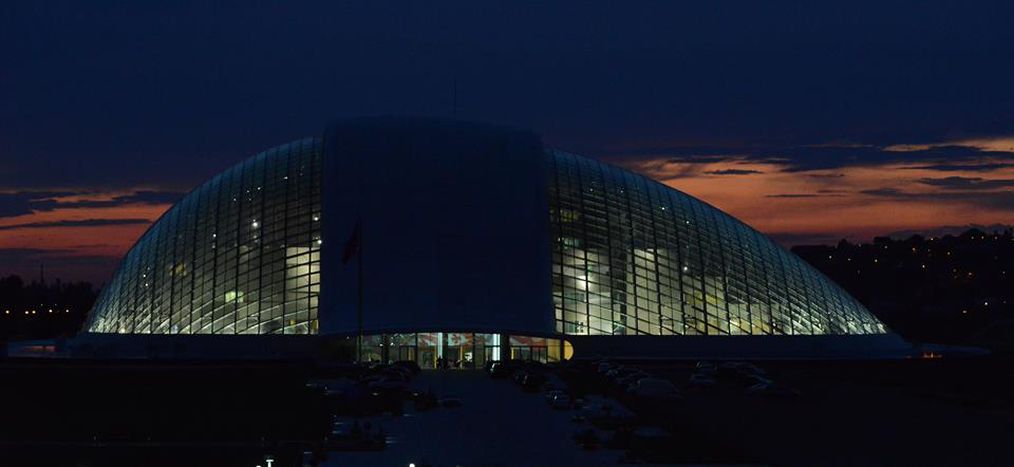
An inside look at the parliament of Georgia
Published on
Institutions that strengthen the Parliament and the question of location.
Georgia doesn’t have a long history of parliamentarianism, notwithstanding the fact that middle school history books claim differently. This lack of experience could be the reason that the Parliament of Georgia is going to change location for the second time in less than 3 years. Since its very inception, the constitution did not declared location of the Parliament, but later on change has been made which ruled that it should be located in Tbilisi. Although on 1 July 2011 decision number 4985 entered into force and the Parliament was relocated. It was thus that the Parliament moved to Kutaisi- the second largest city in Georgia, which was also the capital during the 978-1122 years. Now, as the period of cohabitation ended and the country has a new president Mr. Giorgi Margvelashvili-a philosopher who is new to politics, the Georgian Dream coalition initiated constitutional change in order to relocate the Parliament back to Tbilisi. However, the Georgian Dream party needs the support of the opposition in order to reach 113 votes (3/4 of seats) and change the constitution again.
Public Relations and the Parliament in Action:
It is likely that there will be a long debate about the proposed constitutional change. In the best-case scenario, these debates will last throughout all three rounds of the plenary session. The outcome of these debates will affect the lives of thousands of Kutaisi’s inhabitants and hundreds of Parliamentary staff members. Meanwhile, the Parliament of Georgia continues with its normal full time work schedule. People working for the Department of Public Relations and Information are concerned with the consequences of the plenary debates soon to be held in Parliament, as this will decide if they will work in Kutaisi only until January or stay there indefinitely. The Department of Public Relations consists of four sub divisions: the Press-Center, Media-Monitoring and Analysis, Web-portal development, and public relations and civil action planning. The work of the Press-Center is particularly interesting, as they are present in every event happening within and related to Parliament, most importantly during the chairmen’s official meetings.
The first hearings of the proposed draft laws are most important, and during debates you can hear people with a wide variety of backgrounds speak. Journalists wait outside in the hall, hoping to catch MPs and fiercely writing the news. Several non-governmental organizations are also involved in the work of the Parliament, but the National Democratic Institute for International Affairs (NDI) is the most actively involved NGO.
The Parliamentary Strengthening Program
The organization NDI has been working in Georgia since 1994, but the Parliamentarian Strengthening Program was launched in September 2006. Funded by the United States Agency for International Development (USAID), the program was originally given a three-year mandate that has since been extended. Program activities help the parliament become more representative and more effective in its legislative and outreach capacities. NDI assisted in the development of the structure and ability of parliamentary factions to support issue based legislation and legislative development. NDI also supports constructive policy debate through town hall meetings and roundtable discussions, and promotes the development of the parliament’s institutional capacities through workshops, technical assistance and the NDI parliamentary internship program. One of the program’s most recent projects aims to digitalize parliamentary records and create a database of votes in the form of a website with a searchable format.
Aside from the parliamentary strengthening program, NDI implements a wide variety of activities for the promotion of women’s political participation, political party development, civil society development and the strengthening of local governance. NDI is also supporting Georgia’s strongest election monitoring delegation, the International Society for Fair Elections – ISFED, and has an international election observation and assessment mission. NDI has also done a lot of work to raise the standards of Georgia’s political culture. Regular trainings for parliamentary staff and parliamentarians have gone a long way to ensure that the last presidential elections were held transparently and without excesses.
There is obviously no easy way to make political decisions and reach a consensus over matters that affect dozens of people. However, in order for democracy to function properly, one must put faith in political parties, government and democracy in general. In the “tyranny of majority” so wisely named-democracy, there are not so many choices.



